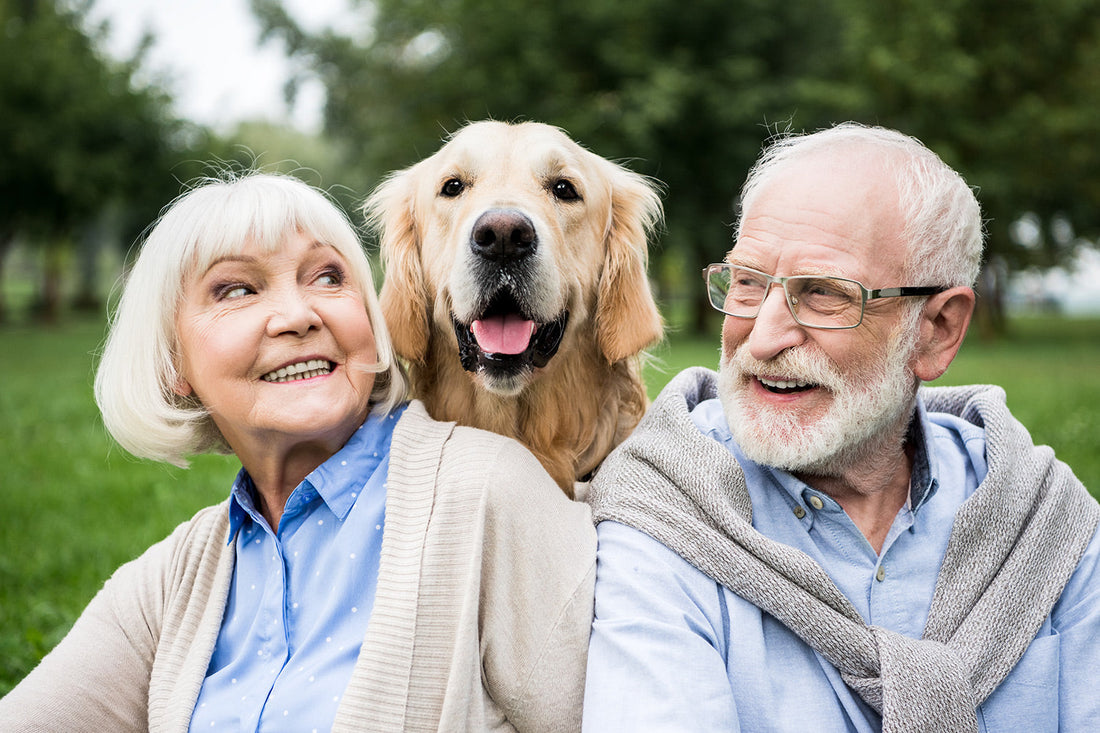
When Is a Dog Considered a Senior?
Share
Most people are familiar with the concept of dog years, where one year of a dog’s life is supposedly equivalent to seven years of a human’s life. This is mostly a myth.
Dogs do age at a much more rapid rate than their owners, but aging works on a different scale and varies depending upon the size of the dog.
If your dog is slowing down and starting to take things a little easier, this may be a sign that they’ve reached their senior years. Here’s everything you need to know about canine aging and caring for your dog during their golden years.
What Does It Mean To Be a Senior Dog?
Senior dogs are just like senior people. A senior dog who has lived a long, happy life full of adventures now needs things to calm down a little bit. In a lot of ways, senior dogs will behave similarly to senior people. As your dog ages, their needs will evolve. While puppies require a wealth of time, attention, and training, senior dogs are usually already established in their routines. When your dog reaches their senior years, your most important priority as a pet owner should be ensuring that your dog is happy, healthy, and comfortable. It’s important to make sure you’re meeting your senior dog’s changing needs. Proper veterinary care and advances in veterinary medicine have made it possible for dogs to thrive well into their senior years.At What Age Do Dogs Become Seniors?
Dogs age differently from humans, and your dog’s growth and development will depend on their size and breed. Some smaller dogs, like Shih Tzus, can live up to 16 years. Smaller dogs often reach seniorhood at around 10 to 12 years. Medium-sized dogs, like basset hounds, generally live up to 12 years. They reach seniorhood at 8 to 9 years of age. Large dogs, like St, Bernards, generally live up to 10 years. They’ll be considered seniors around the 6 to 7-year mark. Giant breeds, like English Mastiffs, usually have a lifespan of 6 to 12 years. They’ll become seniors the soonest. Generally, smaller dogs will live the longest. It’s not unusual for a small breed to remain playful and maintain a little bit of their puppy attitude in their spirit for several years. The larger the dog, the faster the dog will approach their senior years.How Do I Know When My Dog is a Senior?
Your dog’s vet will be able to easily determine when your dog has reached their senior years. There are a few telltale signs you should be able to spot on your own:- The appearance of new silver or white hairs
- Changes in weight and appetite
- Loss of muscle or reduction in functional strength
- Changes in sleep patterns
- Opaque eyes that mimic the appearance of cataracts
- A decrease in overall mobility relating to joint health decline
- Reduced sensory perception, like hearing loss or diminished interest in the smell of food
- In some cases, signs of canine cognitive decline like confusion — signs of cognitive decline require immediate veterinary intervention


